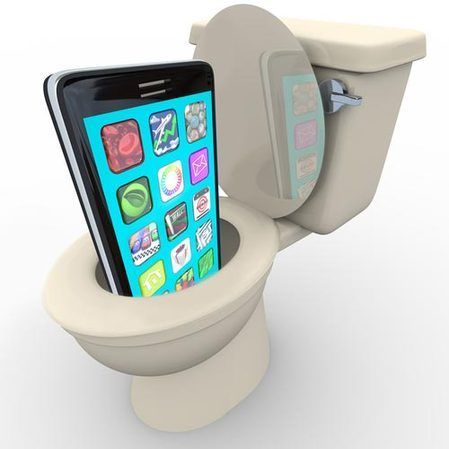联合国:全球手机普及度高于厕所普及度
 联合国:全球手机普及度高于厕所普及度
联合国:全球手机普及度高于厕所普及度 联合国最新一项研究显示,全球70亿人口中,60亿都有手机可用,但只有45亿有厕所可上。该研究报告指出,印度没有厕所可上的总人口数占全球此类人群的60%,约为6.26亿人,而印度国内拥有的手机数量则高达10亿;与此相对应的是,在全球第一人口大国——中国,只有1400万人没有厕所可上。数据显示,每年死于痢疾的人口高达75万,多数是因为没有如厕设施,卫生条件无法得到保证。联合国常务副秘书长埃利亚松表示,如厕问题是很多人不愿讨论的问题,但这又是保证数十亿人健康、拥有环境清洁和基本人格尊严的核心问题。 他表示,联合国正在发起一项全球性的活动,希望在2015年将无厕所可上的人口减至目前的一半。
A new United Nations study has found that more people around the world have access to a cellphone than to a working toilet。
The study’s numbers claim that of the world’s estimated 7 billion people, 6 billion have access to mobile phones. However, only 4.5 billion have access to a toilet。
At a press conference announcing the report, U.N. Deputy Secretary-General Jan Eliasson announced the organization is launching an effort to halve the number of those without access by the end of 2015.
“Let’s face it—this is a problem that people do not like to talk about. But it goes to the heart of ensuring good health, a clean environment and fundamental human dignity for billions of people,” Eliasson said at the press conference。
In August 2012, the Bill Gates Foundation began its own effort to “reinvent the toilet” as a way to help curb the number of people around the world without access to sanitary waste disposal。
Interestingly, the report states that India alone is responsible for 60 percent of the world’s population that does not use a toilet, an estimated 626 million individuals. Yet, at the same time, there are an estimated 1 billion cellphones in India。
Conversely, in the world’s most highly populated country, China, only 14 million people do not have access to a toilet. However, there are also fewer cellphones in China, 986 million, according to the Daily Mail。
Driving the point home, more than 750,000 people die each year from diarrhea and one of its primary causes is from unsanitary conditions created in communities without access to toilets。
And there are other benefits of installing more modern sanitation options that don’t immediately come to mind。
“This can also improve the safety of women and girls, who are often targeted when they are alone outdoors,” said Martin Mogwanja, deputy executive director of the U.N. Children’s Fund. “And providing safe and private toilets may also help girls to stay in school, which we know can increase their future earnings and help break the cycle of poverty。”
- 调查:武汉近半90后大学生是“手机控”2013-03-01 07:58
- 日本泡面神器可插手机看视频 吃饭不再孤独2013-01-25 13:18
- 智能手机不明智:让人每天加班两小时2012-11-01 11:44
- 芬兰扔手机大赛18岁少年创纪录夺冠2012-08-22 14:54
- 揭秘平价手机“不赚钱”利润内幕2012-07-18 16:16
